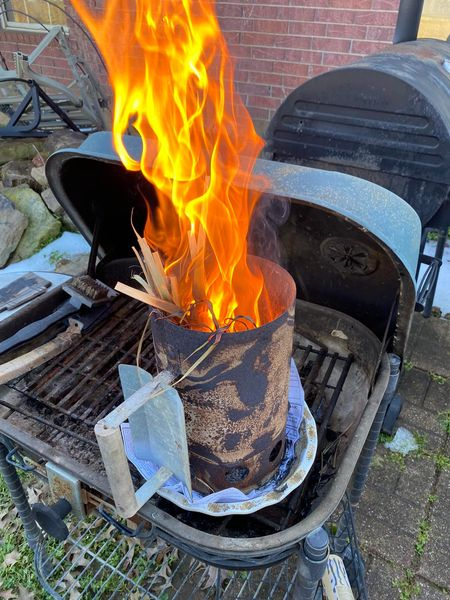The anticipation of fall means waiting for good sailing weather.
Here is my 22-foot vintage sailboat Anastasia. Built in 1979, Anastasia is a
bit weathered like me but is in very good shape. Her name, Anastasia, is the
Greek/New Testament word for Resurrection. I have loved sailing ever since
living in New Orleans for seminary and learning to sail on Lake Ponchartrain.Water, wind, earth, and fire. Christine Valters Paintner reminds
us that these are the four essential elements of the Creation (Earth: Our Original
Monastery. Notre Dame, IN: Sorin Books, 2020, page 59). We can experience two
of these – water and wind – in the ancient activity of sailing a boat.
Jesus reminded Nicodemus, "The wind blows where it will (John
3:8)." He was referring to the divine sovereignty and unpredictability of Spirit.
Such is the work of God, as we await the fair winds of autumn.
Well-known preacher, teacher and writer Barbara Brown Taylor once
said, “I think we’d like life to be like a train, but it turns out to be
a sailboat.” And indeed, our lives do not always run along on predictable
“tracks” but instead are subject to changes and course corrections. Living is
often more like sailing a boat than riding a train. Sailing a boat requires
paying attention to the wind and making the necessary adjustments in response
to wind direction and strength, currents and weather changes.
Nicodemus thought life was like a train – you pick your
train, you get on and ride, and you get off. But Jesus told Nicodemus life is
not like that. Jesus said life in the Spirit is like watching the wind: “The
wind blows where it chooses, and you hear the sound of it, but you do not know
where it comes from or where it goes. So it is with everyone who is born of the
Spirit.”
Indeed, this is not the only place where we hear that the
Spirit of God is like the wind. In fact, the Hebrew word for spirit is also the word for wind or breath. Likewise, the New Testament Greek word for spirit is also the word for wind. So Jesus was making a play on
words.
The Bible says that on the day of Pentecost when the church was
born, the arrival of the Holy Spirit was “like the rush of a mighty wind” (Acts
2:2). When the living God answered Job’s complaints, he spoke to him out of a
whirlwind (Job 40:6).
The wind is a wonderfully mysterious thing. You can sit on a
beach or on a hilltop and enjoy its presence, feel it on your face, and wonder
what sights it has seen and what lands it has visited. Wind can turn the mighty
metal crosses on windmills, generate power, or blow away your house. Wind can
propel sailboats, provided the sailor knows how to cooperate with the wind
rather than fight it or try to control it.
For centuries the sailboat has been used as a symbol of the
church, moved by the power of the Spirit’s wind across the waters of chaos.
Even our church furniture and buildings are described in nautical terms such as
nave, pulpit. Church architecture
often features high ceilings designed to represent an upside-down boat. The
Spirit is to the church what the wind is to a sailor.
Just as Jesus said the work of the Spirit is like the wind, spiritual
life is a little like sailing a boat.
Sailing a boat is a matter of watching the wind, trying to
see where it is going and from what direction it comes, and adjusting your
equipment accordingly. You cannot control the wind but you can learn to observe
it and respond to it. When you become adept at “reading” the wind you can know
the pleasure of being moved along across the water by a power that is not
your own.
Sometimes the wind changes direction (“the wind blows where
it wills”). You can only prepare for that and adjust to it. You must simply be
watching for subtle shifts in the wind’s strength and direction, be on the
lookout for the rippling water which signals these approaching changes, develop
a sixth sense of where the wind is. You
are not going to “harness” or “capture” the wind, but you become in tune with
the wind, adjusting your sails and learning to enjoy the ride. So it is with spiritual
life.
There is a profound peace and exhilaration in moving along
under the wind’s power, hearing the sound of it flowing across the sails and
the singing of the water gurgling along the sides of our boat. Paddling takes a
great deal of effort, and running motors make a great deal of noise. Our only
effort in sailing is in keeping our equipment in tune and our sense of
observation sharp.
I have often thought the practice of prayer finds a deeper
dimension when we are not trying to control or manipulate God, but to cooperate
with God as the sailor cooperates with the wind, observing the movements of both
water and wind, respecting their power, and adjusting the trim of our equipment
in response.
For reflection: Prayer
is not always about our asking God to bless what we are doing; prayer at its
best is when we ask what the Spirit is
doing and we seek to be a part of that.
"The wind blows
where it will (John 3:8)."








